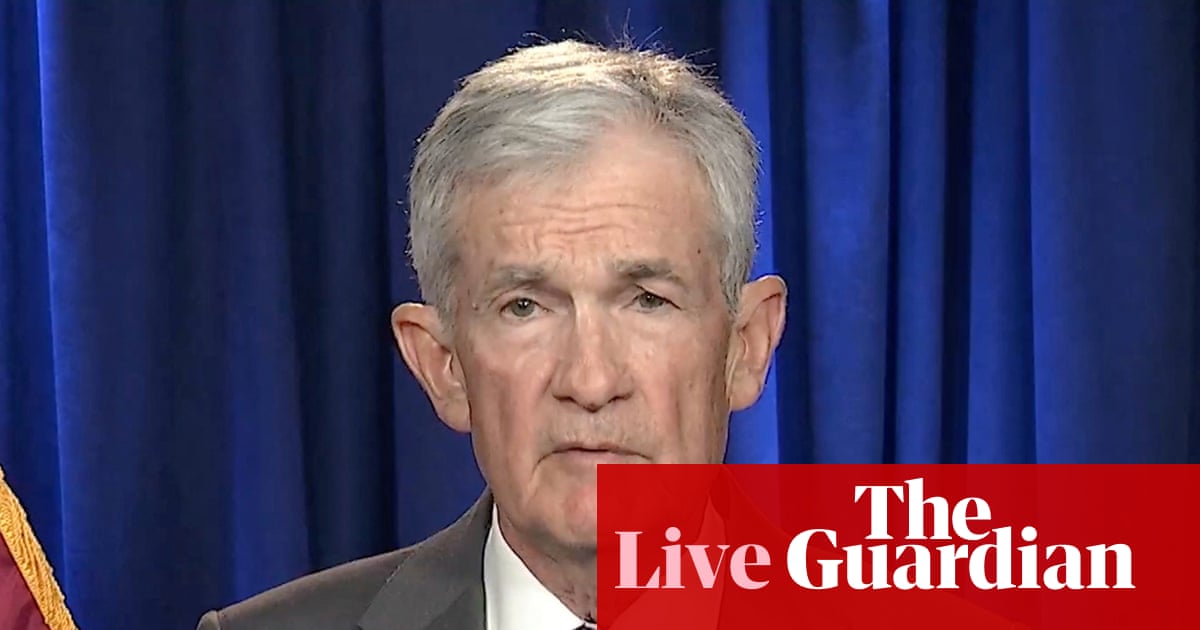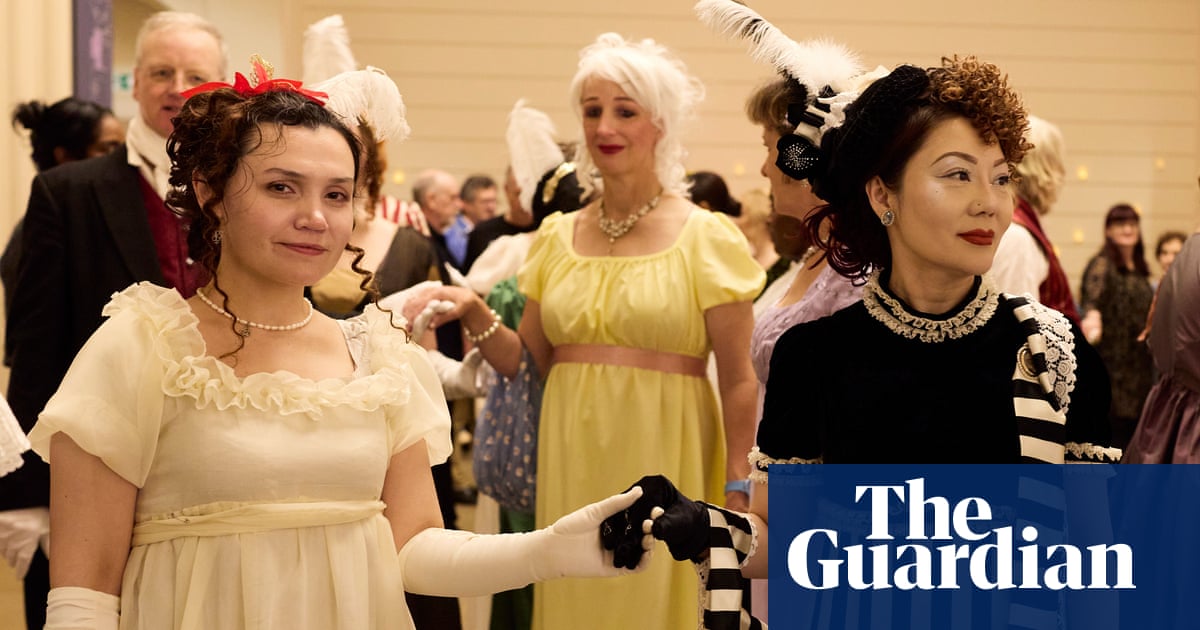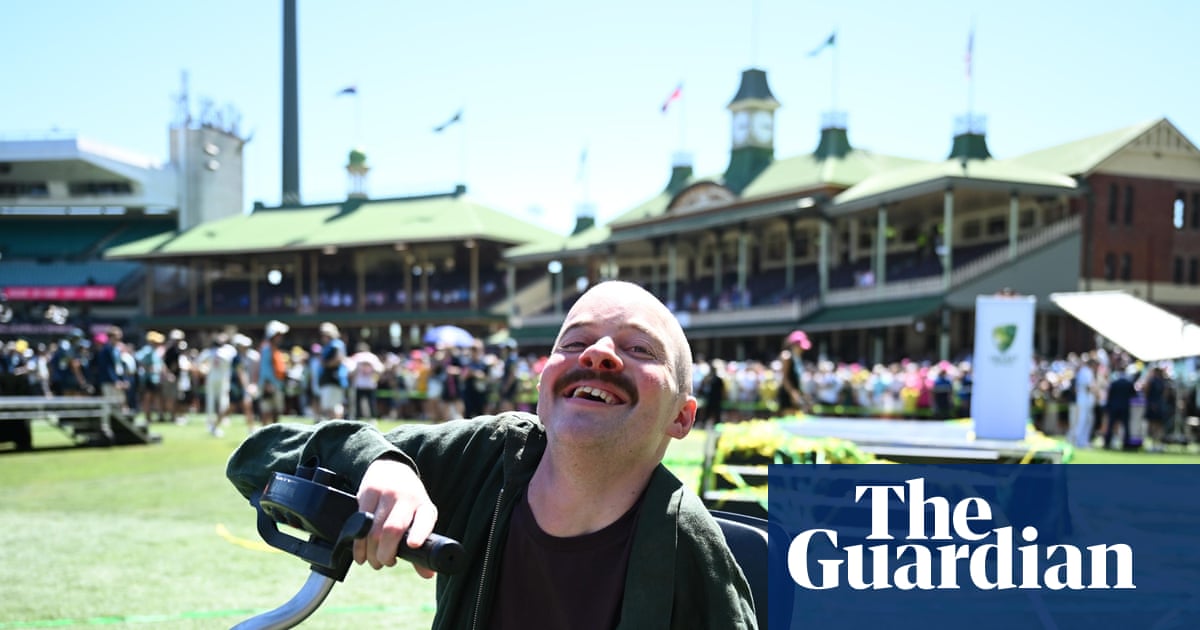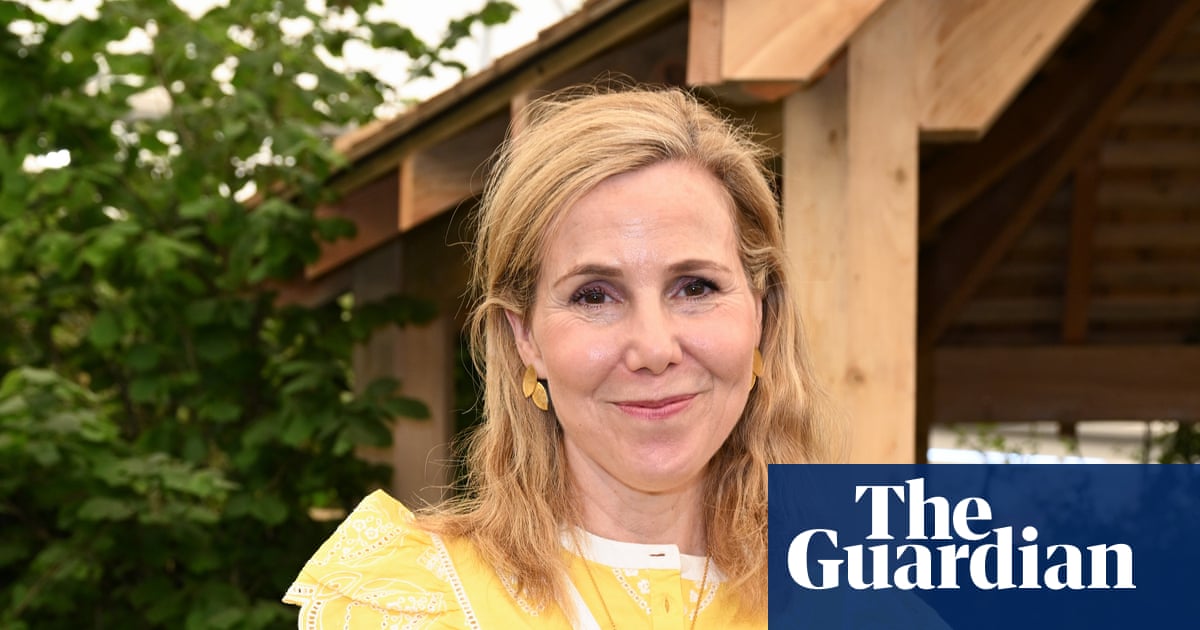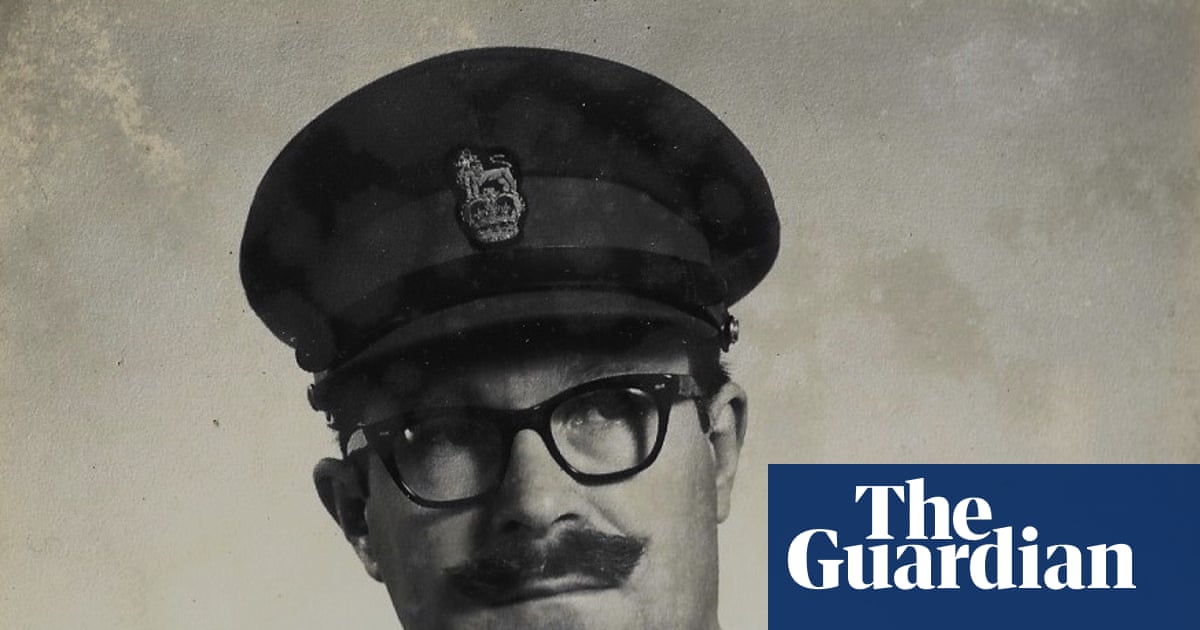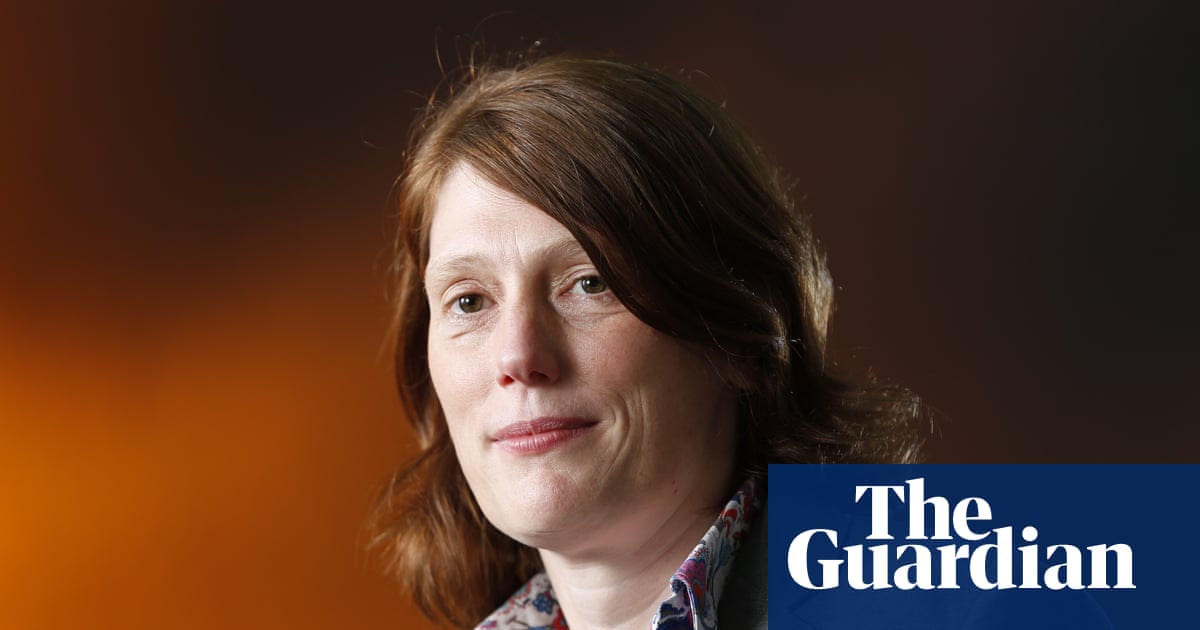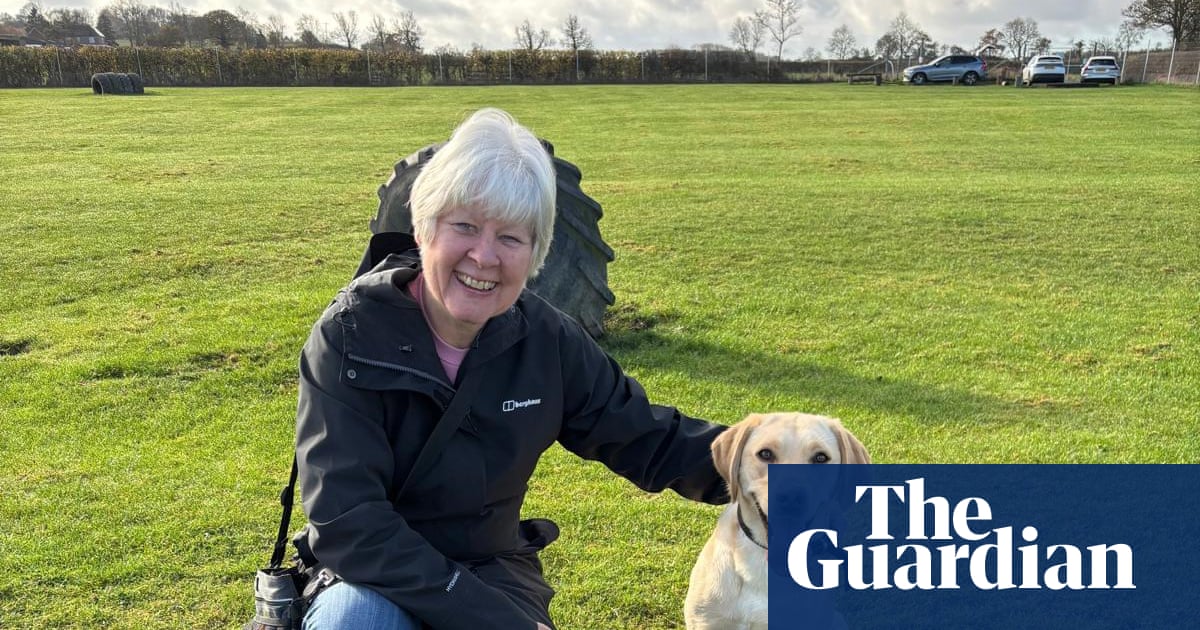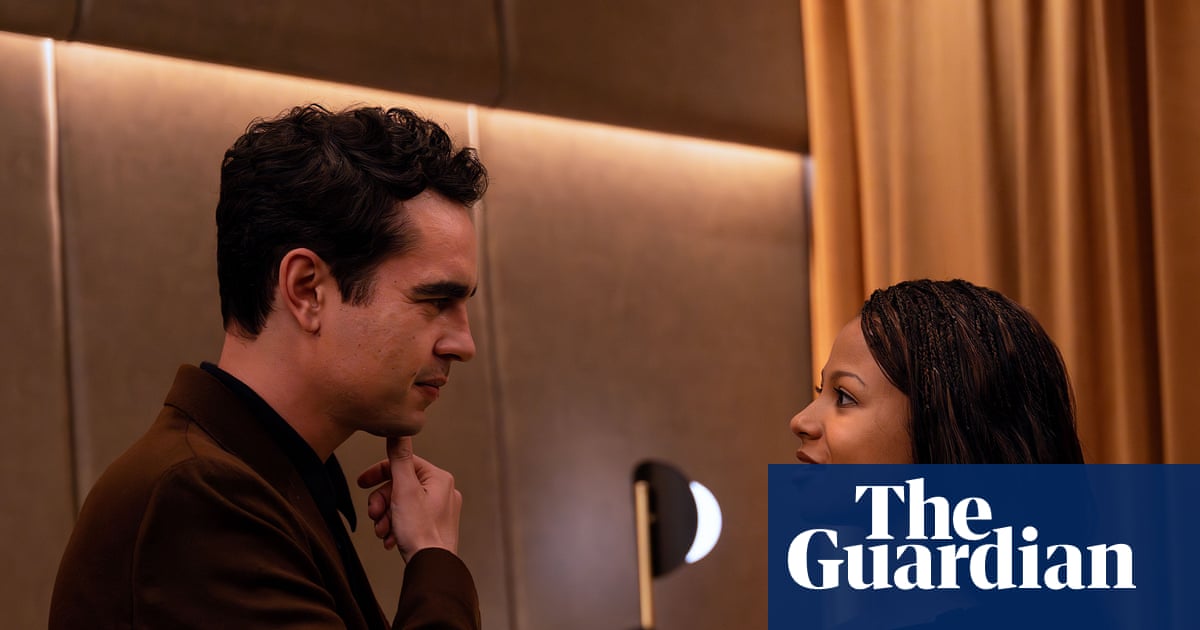For more than two decades, the BBC Television Service was the only option for UK viewers. Until 22 September 1955, when a commercial rival, Independent Television, started at 7.15pm with fanfares and speeches from a launch jamboree at London’s Guildhall, continuing with playlets from Oscar Wilde and Noël Coward, then a middleweight boxing bout.
Over the subsequent seven decades, ITV has screened shows that are unforgettable, wrongly and rightly forgotten and, in some cases, now-unforgivable. Here, as a 70th birthday card, are the most significant shows from each year, reflecting the shift from regional franchises to a single ITV Studios with dozens of independent production companies.
1955 – Take Your Pick!
Because it was funded by advertising rather than the licence fee (£3 per year at the time), ITV was able to be more commercial in gameshow prizes, which, on the BBC, had to be token. (Crackerjack, launched in the same year, gave pencils to winners and cabbages to losers!) On the first British show to offer cash prizes, finalists had to take their pick from boxes numbered one to 10, potentially winning a booby prize, a cash gift of £80 (about £1,800 now) or the “star prize” (car/package holiday).
1956 – The Outsider
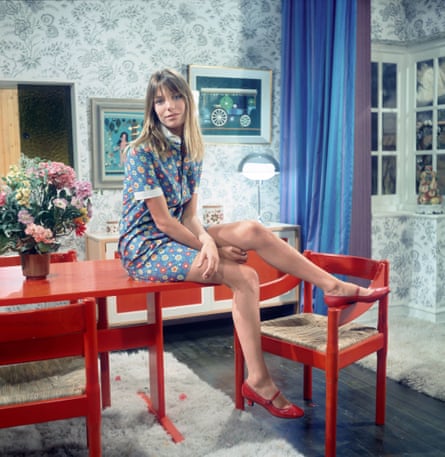
Early regional franchises were awarded on the “quality” of their programme proposals, usually taken as code for “public service”. This meant high-end drama, including Armchair Theatre, a long-running (until 1974) prime-time slot for single plays. The majority were originals but, perhaps aiming for prestige, it began with a revival of a 1923 theatre piece, The Outsider, though, less conservatively, it was written by a woman, Dorothy Brandon.
1957 – Jim’s Inn
How nakedly commercial ITV could or should be was much debated. Initially, some regions broadcast an “advertising magazine” – mini-dramas packed with actors pushing products. Among the most successful was Jim’s Inn, set in a mock pub where the presenter, Jimmy Hanley, tried to flog stuff. Such programmes were outlawed in the 1963 Television Act and “product placement” illegal for 54 years.
1958 – William Tell
In the year that Pope Pius XII declared St Clare of Assisi the patron saint of TV – some pious Catholics placed an icon beside their aerials to boost the signal – this was an early international co-production. Lew Grade (uncle of Michael Grade) had failed to win a franchise but his Incorporated Television Company sold shows to the networks, including this tea-time adventure series for which 14th-century Switzerland was recreated in Borehamwood, Hertfordshire.
1959 – Probation Officer
Fact-based drama become a key ITV brand and this pioneer, fictionalising real cases from Probation Service files, was billed as a “dramatised documentary series”. Early ITV schedules had been dominated by half-hour dramas, but Probation Officer popularised the one-hour prime-time slot.
1960 – Coronation Street
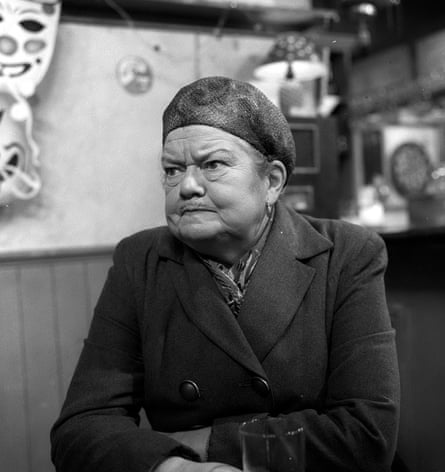
Five years after the BBC tried to spook ITV with soap opera – diverting 20 million radio listeners from the new service by killing young bride Grace in The Archers – ITV launched a TV soap that has often rattled the BBC with its popularity. Made in the north of England about the north of England, it was also unusually female-led, with stand-out early characters including Ena Sharples (Violet Carson) and Annie Walker (Doris Speed), although William Roache as Ken Barlow was there then and remains now.
1961 – Survival
The ratings hit this year was The Avengers, but at least as influential and more enduring was this wildlife series, which ended up running for 40 years. The title initially reflected Darwinian competition among animals but presciently came to imply extinction and conservation as well.
1962 – Police 5
Lew Grade took over a failing Midlands franchise to create ATV, which found a canny way to fill five-minute gaps that were left because US imports tended to be shorter than ITV slots. Viewers were invited, pre-CCTV, to identify wrong ’uns from identikit and witness statements. “Keep ’em peeled,” said host Shaw Taylor from Scotland Yard at the end of each episode, pointing to his eyes. The grass-your-neighbours format peaked with the BBC’s Crimewatch UK (1984-2017) but Police 5, which ran until the early 90s, was the first guvnor.
1963 – Ready Steady Go!
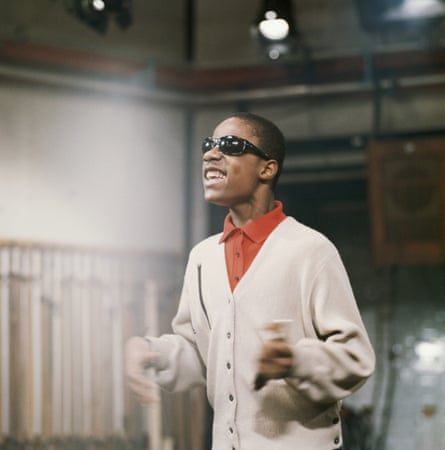
The era of the Beatles and the Rolling Stones spawned much pop music TV. A year ahead of the BBC’s Top of the Pops, this Friday evening live music and interview show spread the catchphrase: “The weekend starts here!”
1964 – 7 Up
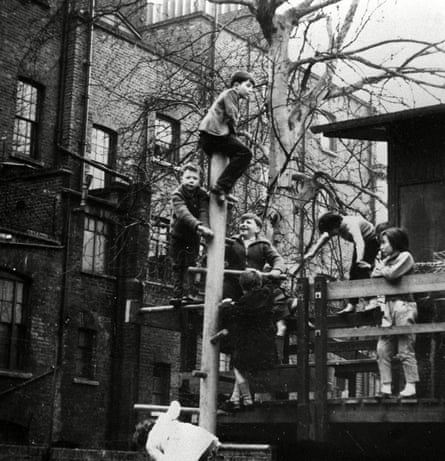
Now nine years old, ITV had more competition (BBC Two launched this year) and was thinking about growing up. Regional franchise Granada optimistically signalled its own longevity by starting a project that might last for nine decades, revisiting 14 seven-year-olds at seven-year intervals. Apart from Coronation Street, this is the longest surviving ITV franchise – and the network has already trailed 70 Up for 2026.
1965 – Thunderbirds

Only 32 episodes were made of Gerry and Sylvia Anderson’s weird but watchable super hero puppet show – featuring electronic marionettes with visible strings – but reruns, homages and parodies make it a cultural powerhouse.
1966 – Weavers Green
BBC and ITV shared the biggest TV event – England’s still only ever football World Cup victory – but less memorable is a soap set around a veterinary practice. Unlike several ITV soaps that lasted decades, it was over by Christmas, though looked to the future by using lightweight video cameras rather than cumbersome film for its Norfolk location scenes.
1967 – News at Ten
Initially, ITV news was short, regional and moveable to maximise advertising space. The national half-hour bulletin, produced by Independent Television News (ITN), went for 10pm to avoid the 9pm-ish BBC main news and allow time for mid-evening movies. At a time when actors read the BBC news, ITN employed journalists (including Alastair Burnet and Reginald Bosanquet, and later Anna Ford and Trevor McDonald) who became at least as famous as the presidents and prime ministers.
1968 – The Big Match
In the 1967 contest for licences, the Independent Television Authority (ITA) gave Friday-Sunday in the capital to London Weekend Television and the rest to Thames. Each launched a show as a direct challenge to the BBC – LWT’s The Big Match kicked Match of the Day while Magpie, also starting in 1968, challenged Blue Peter (born 1958).
1969 – On the Buses
Alongside one of ITV’s most shameful commissions – Curry and Chips, with Spike Milligan playing a cosmetically assisted Indian – comedy was better represented by this London-set show, which made a star of Reg Varney, about drivers and “clippies” (conductors) on the capital’s distinctive red double-deckers.
1970 – Kate
The recent reshuffle had created a new Leeds-based broadcaster called Yorkshire. Its first slate included Kate, a Wednesday 9pm hit about a newspaper agony aunt. Phyllis Calvert, a British movie star, made her TV debut, confirming the medium’s rising status.
1971 – Upstairs, Downstairs
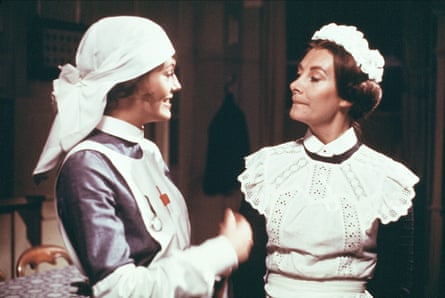
LWT – despite a partial takeover at the time by the Australian republican Rupert Murdoch (later blocked by regulators) – went posh and retro with Upstairs, Downstairs, a story of aristocrats and their servants starting in 1903 in the super-rich Belgravia part of the transmission area.
1972 – Emmerdale Farm
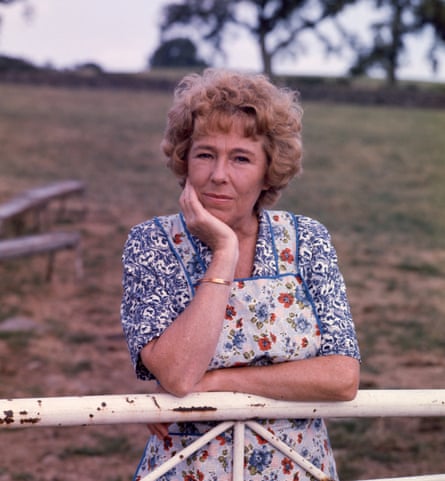
Despite schedules including a supersoap, Coronation Street, and a subsoap – Crossroads – the network responded to government permission for more daytime hours with a lunchtime “continuing drama” intended by the network Yorkshire to flaunt the possibilities of colour television by filming in the county’s beautiful rural parts. It’s another longtime ITV survivor, though now in prime-time and (since 1989) just called Emmerdale.
1973 – Divorce His, Divorce Hers
The network Harlech had secured the Welsh licence partly with the promise that the cultural king of Cymru, Richard Burton, and his wife, Elizabeth Taylor, would appear on screen. Eventually they did, in a “made for TV movie” about a divorce: the husband’s viewpoint on Sunday, the wife’s the next night. The performances felt authentic … perhaps because the couple divorced the next year, though they would remarry and redivorce within 24 months.
1974 – The World at War
The idea of an ITV giant, the Thames programme controller Jeremy Isaacs, The World at War had started late the previous year. But it was in the first half of 1974 that the magnitude and magnificence of this 26-part series became fully apparent – using archive and interviews to depict the second world war from its 1930s origins to its 1960s aftermath to an audience full of survivors and relatives of the dead.
1975 – The Sweeney
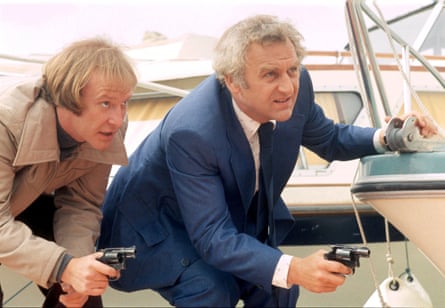
Because all the regional licensees were contractually required to reflect their patch, Thames included the capital’s underside in a show that has influenced all cop drama since. Named after rhyming slang for the CID’s rapid reaction force, the flying squad (Sweeney Todd), the show was defined by loudness – shouting, squealing tyres and the stripes on fat ties.
1976 – Bill Brand
It now seems remarkable that 13 Monday prime-time slots were given to Trevor Griffiths’ dense epic about the Westminster disillusionment of a new Labour MP from the north of England, played by Jack Shepherd. Yet it described a tension in the Labour party between ideological purity and governmental compromise that continues now.
1977 – The Professionals
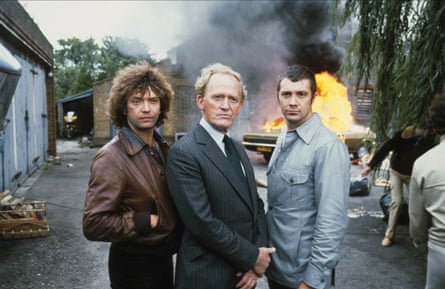
Essentially The Sweeney on speed, this was a classy example of the popular TV trope of the secret police unit licensed to do anything to stop bad guys. The agents were Bodie (Lewis Collins), who had left the SAS because it was a bit soft, and Doyle (Martin Shaw), an ex-copper who calmed the regulator by expressing qualms about extreme methods.
1978 – The South Bank Show
Currently being celebrated for braining-up British radio through 27 years of In Our Time, Melvyn Bragg greatly boosted ITV’s IQ during 32 years of the finest British television arts series, including landmark chats with Harold Pinter, David Hockney, Victoria Wood, Martin Amis, Miriam Makeba and Olivier Messiaen.
1979 – Minder
Thames continued as an anti-London Tourist Board with another Cockney classic, featuring criminals too petty for The Sweeney. George Cole played Arthur Daley, a hapless chancer, with Dennis Waterman as Terry McCann, his ex-boxer bodyguard.
1980 – Death of a Princess
Margaret Thatcher cited the BBC’s Yes, Prime Minister as her favourite show; this was among her least. ATV’s drama-documentary fictionalised an apparently true story of a princess executed for adultery in Saudi Arabia, where political reaction led to the banning of British Airways flights and the cancellation of trade deals. Condemning the show, the Thatcher government seemed to lament that it lacked Middle Eastern censorship powers. That ATV lost its ITV licence in the 1982 reshuffle was officially a coincidence.
1981 – Brideshead Revisited
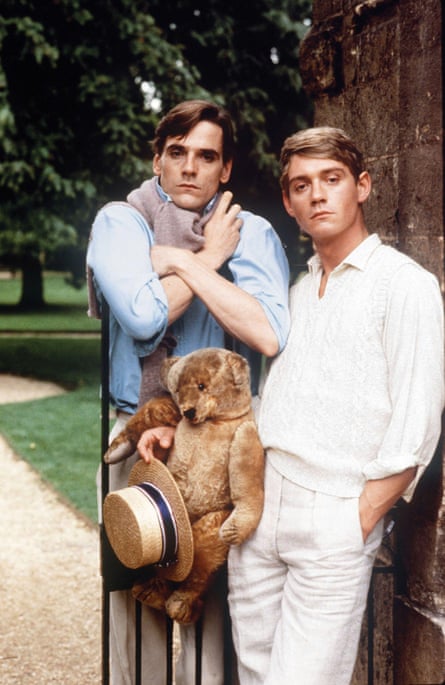
The north-west franchise Granada openly aspired to be a BBC beside the Manchester Ship canal, most provocatively parking its tanks on the lawns of the country house classic adaptation with this 13-part version of Evelyn Waugh’s 1945 novel about Catholic nobs. From Jeremy Irons’s mournful narration via a cameo from Lord Olivier to the honeyed photography, it terrified the BBC, as planned, and remains among the greatest TV dramas.
1982 – Wolcott
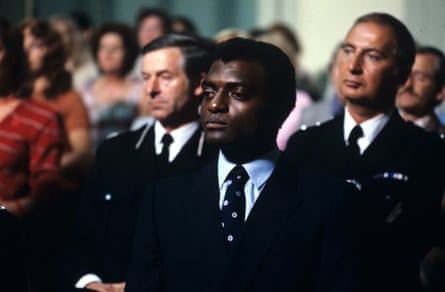
The only annual entry in this list that didn’t transmit. A 13-part series had been announced following an impressive critical reception for the previous year’s pilot with George Harris as the first lead Black detective on British TV. However, the producing company, ATV, lost the Midlands contract in the 1981 franchise round (which, incidentally, inspired Jilly Cooper’s 1988 novel Rivals, now a Disney+ sensation) and so a pioneering project ended.
1983 – Auf Wiedersehen, Pet
ATV replacement Central had a starry opening slate including Auf Wiedersehen, Pet, mainly written by Dick Clement and Ian La Frenais, which followed a group of British “brickies”, “chippies” and “sparks” who, unemployed in the UK, worked on German building sites. Launching stars Kevin Whately, Jimmy Nail, Timothy Spall, it should be viewed by all historians of the UK’s relationship with Europe.
1984 – The Jewel in the Crown
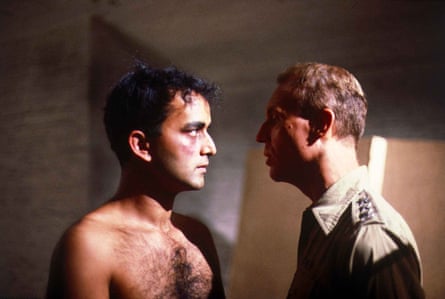
Granada’s stalking of the BBC continued with another high-end filmed book: a 14-parter adapted from Paul Scott’s novels about the fall of the British Raj rule of India. Stance and casting might now be considered Anglocentric but the show steered great careers – Charles Dance, Tim Pigott-Smith, Geraldine James, Art Malik – and it is hard not to feel awe at the ambition and funding British television could then have.
1985 – Widows II
A year, rare at the time, of female power. Cilla Black became British TV’s most important woman through LWT’s matchmaker flagship Blind Date; four major female comedians – Dawn French, Jennifer Saunders, Ruby Wax and Tracey Ullman – starred in the Central sitcom Girls on Top; and the second series of Widows, a feminist twist on the gangster drama established Lynda La Plante as one of TV’s key writers.
Having briefly owned LWT, Rupert Murdoch, as a rightwing newspaper baron, was the clear target, with rival print tycoon Robert Maxwell, of this spirited two-season sitcom from David Renwick and Andrew Marshall in which Robert Hardy, through pioneering split-screen, played both the owner and editor of a tabloid, a good joke about editorial independence.
1987 – Inspector Morse
In what seemed like overreach then but prescience now, the producer Kenny McBain persuaded ITV to give two hours to adaptations of Colin Dexter’s books about a depressive, real ale-drinking, crossword solving Oxford detective, giving John Thaw a very different TV police career after The Sweeney. Morse, which ran until 2000, still leaves clear DNA traces on all detective dramas and a sequel, Lewis (2006-15) and prequel, Endeavour (2012-23), make it, at 33 years on air, British TV fiction’s greatest dynasty.
1988 – Death on the Rock
A show Thatcher liked even less than Death of a Princess, the This Week documentary examined the alleged “execution” of three IRA members in Gibraltar. The Foreign Office made unsuccessful attempts to have the film banned but it was almost certainly no accident that in the next ITV licence round, Thames lost London to Carlton, a company with a young David Cameron as head of PR.
1989 – Agatha Christie’s Poirot
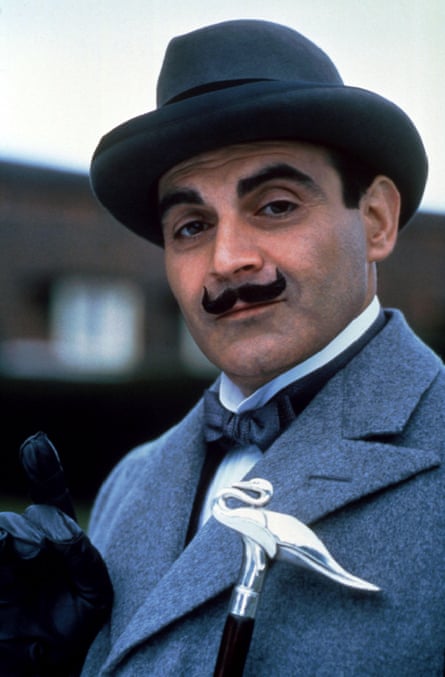
The two oldest broadcasters fought over England’s most popular novelist, with the BBC favouring Miss Marple and ITV Hercule Poirot. David Suchet meticulously caught every Belgian-Anglo vowel and moustache twitch in dramatisations of all 70 Poirot stories over 24 years.
1990 – Who Bombed Birmingham?
World in Action had screened investigative documentaries since 1963 but achieved its greatest success with a drama-documentary that freed six innocent people suspected of being IRA terrorists from jail and remains a gold standard of the genre known as “faction”, using performers to engage audiences with reporting.
1991 – Prime Suspect
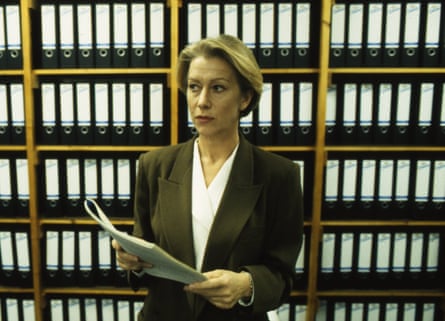
Having feminised robbers in Widows, Lynda La Plante did the same for cops with Helen Mirren – another example of the level of star TV could now attract – as senior detective Jane Tennison, solving cases while fighting misogyny and alcoholism. Seven series over 15 years make this a signature crime franchise.
1992 – Gladiators
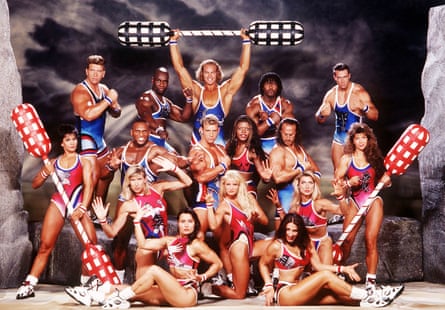
Highest-bidder franchises forced surviving networks downmarket to pay for their licences. A symptom of populist desperation was Gladiators, an arena entertainment game in which pseudonymous characters – Wolf, Jet, Falcon – competed in bone-cracking challenges.
1993 – Cracker
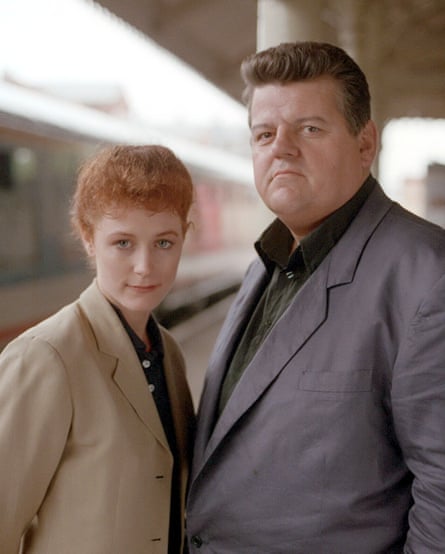
Jimmy McGovern refreshed the police procedural by focusing on criminal psychologist Fitz (Robbie Coltrane’s career-best role) who gets results despite or because of his own personality disorders.
1994 – Charles: The Private Man, The Public Role
Jonathan Dimbleby secured from the heir to the throne the then most candid royal interview, including, most shockingly to monarchists and clerics, an admission of adultery. Diana, Princess of Wales, retaliated next year with a Panorama heart-spill – obtained, we now know, by interviewer Martin Bashir through nefarious means – which led to divorce, Diana’s presence in a fast car in a Paris underpass in 1997 and incalculable mental consequences for the couple’s sons.
1995 – Band of Gold
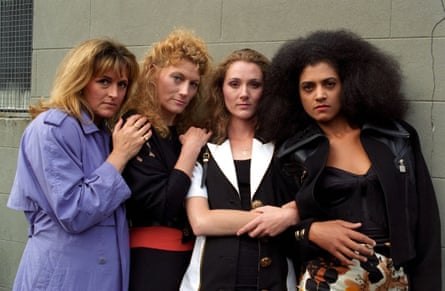
Kay Mellor (1951-2022) showed her special talent for tragi-comedy about northern English working-class women – see also Fat Friends and Playing the Field – in this returning series about sex-workers in Bradford, with a cast including Geraldine James, already a star, and Samantha Morton, becoming one.
1996 – Hillsborough
Somehow both forensic and emotive, Jimmy McGovern’s docudrama about the 97 fatalities from incompetent policing of overcrowding at a Liverpool v Nottingham Forest FA Cup in 1989 stood as both a memorial and a court of public opinion.
1997 – Cold Feet
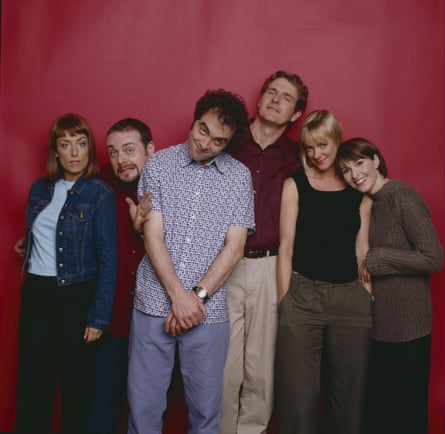
Granada’s domination of ITV drama in this period (four of the past five entries) continued with Mike Bullen’s tender but sometimes tough examination of young couples navigating love, infidelity, cancer, unemployment with a supreme ensemble cast: Helen Baxendale, Hermione Norris, James Nesbitt, Fay Ripley, Robert Bathurst, John Thomson.
1998 – Who Wants to be a Millionaire?
Since Take Your Pick! on opening night, ITV had pushed for ever bigger contest prizes and reached the long-desired seven figures with Chris Tarrant presiding over a quiz that required players to risk huge losses to win big.
1999 – Pride of Britain Awards
At a time when ITV hits and red-top newspapers each reached tens of millions, tie-ups made sense. The Sun often seemed to have an inside track to Coronation Street and the network collaborated with the Daily Mirror on this honours system for regular Britons.
2000 – At Home With the Braithwaites
ITV was disappointed that rights to the National Lottery went (from 1994-2017) to the BBC, but the underbidder got the better content than the rotating balls in this sparkling four-season drama about the domestic and moral consequences for a family that wins £38m. The series debut of Sally Wainwright, who has become a key TV dramatist, though largely on the other side (Happy Valley, Last Tango in Halifax.)
2001 – Harry Hill’s TV Burp
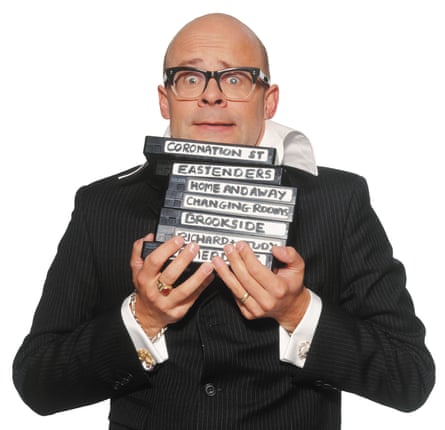
From Denis Norden’s It’ll Be Alright on the Night (from 1977) through to Clive James on TV (LWT, 1992-98), television had been increasingly hungry to eat itself, ridiculing clips from mainly foreign shows. Hill took broadcast cannibalism to its highest levels by focusing on British TV, often from the previous week, with a combination of silliness (puppets, pranks) and real critical acuity.
2002 – I’m a Celebrity … Get Me Out Of Here!
With financial pressures collapsing the regional structure to make ITV a single broadcaster, there was economic canniness in a show that could fill two to three weeks of prime-time for the cost of flying fading celebrities to eat animal genitalia in the Australian rainforest and paying the presenting fees of Anthony McPartlin and Declan Donnelly, who became ITV royalty. For quizzers: the first winner was DJ Tony Blackburn.
2003 – The Second Coming
Both Channel 4 and the BBC turned down Russell T Davies’s story of a young Mancunian, played with his special intensity by Christopher Ecclestone, who believes he is Jesus Christ returned to Earth on a mission to save the world from Armageddon. Theologically serious and unnervingly convincing, it has dated only in the Jesus 2.0 being a video store worker.
2004 – The X Factor
A year after fantasising about finding a Messiah, the network identified one who was real (with some cosmetic help) in Simon Cowell, whose pop contest show began his long domination of ITV schedules. NB quizzers: Steve Brookstein.
2005 – The Jeremy Kyle Show
Though there was muttering about quality, no one could doubt ITV’s quantity: now four channels and a thriving morning schedule, including Jeremy Kyle’s Anglicisation of US confrontation shows in which former friends and warring families faced off over sex or money claims, with a lie detector on hand to identify (in theory) liars. The show was cancelled in 2019 after the suicide of a recent contestant, although a coroner found “no causal link”.
2006 – See No Evil: The Moors Murders
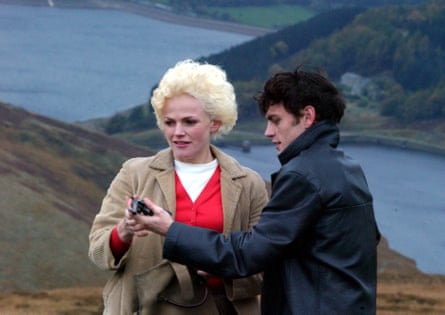
The story of child killers Myra Hindley (Maxine Peake) and Ian Brady (Sean Harris) was told with dramatic sensitivity in an early collaboration between two masters of true crime drama: writer Neil McKay and producer Jeff Pope, whose later collaborations include Appropriate Adult, The Moorside and Four Lives.
2007 – Britain’s Got Talent

The network’s most successful producer – Simon Cowell – and favourite presenters – Ant & Dec – formed a power throuple in this variety contest for acts ranging from opera singers to trick-performing dogs. One of the former – Paul Potts – won the first series; one of the latter – border collie Pudsey – the sixth run (of 18 so far.)
2008 – Moving Wallpaper/Echo Beach
A sudden ITV executive desire not to be known mainly for talent shows and bushtucker trials is the most plausible explanation for arguably its strangest ever prime-time show. A half-hour comedy about the making of a soap called Echo Beach was immediately followed by an episode of that show. Hard now to believe it really happened.
2009 – The Chase
Back to business as usual with an ingenious quiz in which civilians compete against a terrifyingly knowledgable professional quizzer called The Chaser. Still running today, it was crucial in securing Bradley Walsh a contract to present all TV shows if possible.
2010 – Downton Abbey
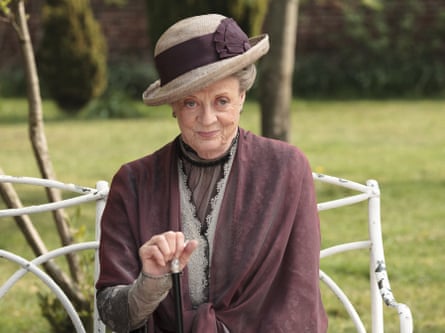
Combining echoes of earlier ITV posho-shows Upstairs, Downstairs and Brideshead Revisited with his own 2001 movie Gosford Park, Julian Fellowes created one of TV’s most prolific and profitable franchises (six TV series, five specials, three movies) by suggesting the Edwardian aristocracy were surprisingly kind and liberal and persuading Britain’s greatest actor – Dame Maggie Smith – to do TV as the Dowager Countess, although she claimed never to have watched an episode.
2011 – Long Lost Family
The digital possibilities of social media reconnection drive a tear-jerker that, with appropriate psychological support, reunites separated relatives. Key to its continuing success is the emotional intelligence, deepened by crises in their own lives, of co-hosts Nicky Campbell and Davina McCall.
2012 – The Martin Lewis Money Show
As “austerity” gave way to a permanent “cost of living crisis”, financial advice was vital. With a natural broadcasting manner and an astonishing ability to digest small print and identify big savings, Lewis is an exemplary public service expert.
2013 – Broadchurch
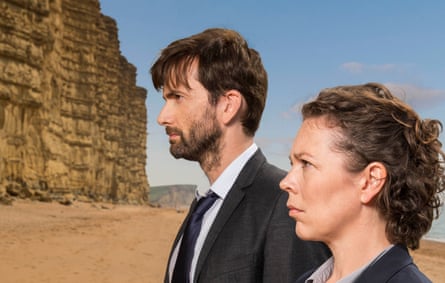
Curious for a cast including an actor who had played the lead in Doctor Who (David Tennant) and another who soon would (Jodie Whittaker), Chris Chibnall’s series confirmed that an enduring crime show needs a beautiful location – Dorset’s Jurassic Coast – and a sense of the reality of death: Tennant and Olivia Colman, as contrasting glum/warm detectives, investigated the long consequences of a child murder over three series.
2014 – The Lost Honour of Christopher Jefferies
After the murder of young architect Joanna Yeates in Bristol, her landlord, the schoolteacher Christopher Jefferies, was suspected by police and effectively convicted by print and TV media. He was completely innocent and Peter Morgan’s drama, directed by Roger Michell, has a superb Jason Watkins in a warning story of someone beaten with the wrong end of the stick.
2015 – Unforgotten
Making cold cases hot, Chris Lang’s scripts begin with the chance discovery of a corpse that soon links with a disparate range of people who think they have got away from it or with it. DCI Cassie Stuart (Nicola Walker) and DI Sunny Khan (Sanjeev Bhaskar) were perhaps more empathetic than homicide detectives can reasonably be, and Walker handed over to Sinéad Keenan for the fifth and sixth seasons.
2016 – Victoria
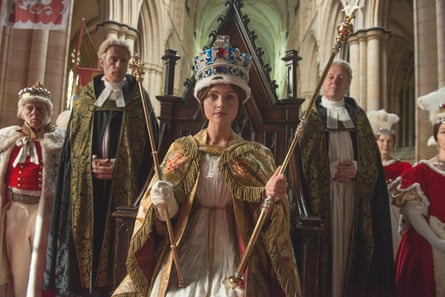
The 90th birthday year of the former British monarch seems to have sparked monarchical drama with the launch of both Peter Morgan’s The Crown (Netflix) and Daisy Goodwin’s glossy bio-drama of the woman whose 63-year reign Queen Elizabeth II had just overtaken. The decision to concentrate on the youth of a figure known for being old paid off in Jenna Coleman’s sparky performance.
2017 – Little Boy Blue
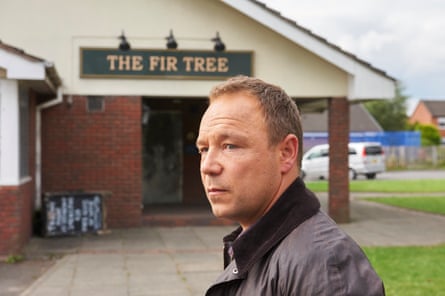
News-based drama supremo Jeff Pope wrote this gruelling but moving four-parter about the investigation into the gun murder of 11-year-old Rhys Jones in Liverpool in 2007. As the homicide cop in charge, Stephen Graham gave notice of his genius for hyper-realistic acting.
2018 – Gemma Collins: Diva
With audiences fragmenting, networks needed to be a broad church but worshippers of Broadchurch may have regarded as the work of Satan this reality show featuring a vivid influencer which screened on ITVBe, a niche channel for younger women.
2019 – Good Morning Britain
The year 2019 was pivotal in British politics with Boris Johnson becoming an unelected PM, then an elected one and pledging to “get Brexit done”. This period was also the television zenith of another PM – Piers Morgan – who, perfectly counterweighted by co-host Susanna Reid, made the breakfast sofa a nervous perch for all authority figures.
2020 – The Masked Singer

Future historians will enjoy the fact that just before the UK population was forced into masks by the pandemic, the latest TV hit was based around face-coverings with contestants belting out a number while elaborately disguised as a hedgehog, sausage or dressed crab with the revelation (to audience chants of “Take it off!, Take it off!”), sometimes exposing an impressive level of celebrity.
2021 – Stephen
Twenty-two years earlier, ITV had screened The Murder of Stephen Lawrence, which was excellent but depressing as the racists who killed the 18-year-old schoolboy escaped justice. The sequel told a more rewarding story of the fight by Stephen’s parents, Doreen (Sharlene Whyte) and Neville (Hugh Quarshie) to achieve some convictions, having the luck to find an antiracist cop in the London police force: DCI Clive Driscoll (Steve Coogan).
2022 – DI Ray
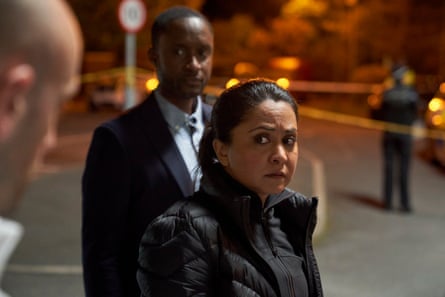
With storylines and casting unimaginable when ITV began, this very 21st-century police procedural starred Parminder Nagra as senior detective Rachita Ray.
2023 – Changing Ends
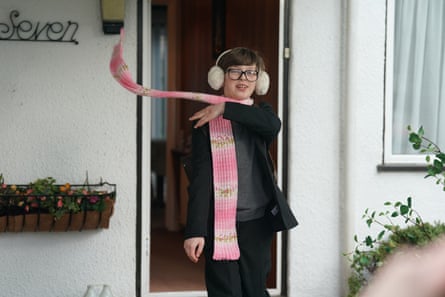
Alan Carr’s sassy autobiographical sitcom about the football-phobic, homophile son of the Northampton Town FC manager in the 1980s featured the comedian as onscreen narrator, which underlined the body-snatching uncanniness of Oliver Savell’s perfect performance as the young Alan.
2024 – Mr Bates vs the Post Office

Wise voices said it was no longer possible, given competition from global streamers, for UK networks to get vast nightly audiences for a local British story. Wrong: about 10 million tuned in live to Gwyneth Hughes’s four-parter about the subpostmasters who variously took their own lives or went through imprisonment, bankruptcy or divorce after a dodgy Fujitsu computer system falsely implicated them in fraud. Aged 69, ITV could still kick like it used to.
2025 – I Fought the Law
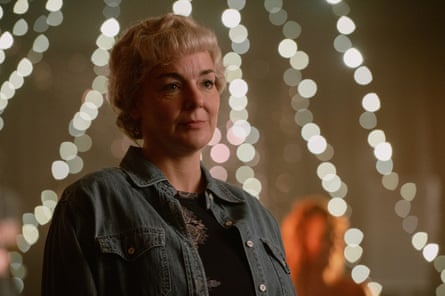
Sheridan Smith already had a distinguished ITV CV – 2012’s Mrs Biggs, 2014’s Cilla – but even her talent for total emotional and physical immersion in a real person’s life was surpassed as Ann Ming, who, after her daughter’s killer escaped justice on technicalities, successfully campaigned to remove the 800-year-old “double jeopardy” law so that he could be tried again. (This also proved vital in the Stephen Lawrence case.) A performance that should surely win Smith a second Bafta best actress trophy gives ITV a perfect 70th birthday present.

 3 months ago
94
3 months ago
94

